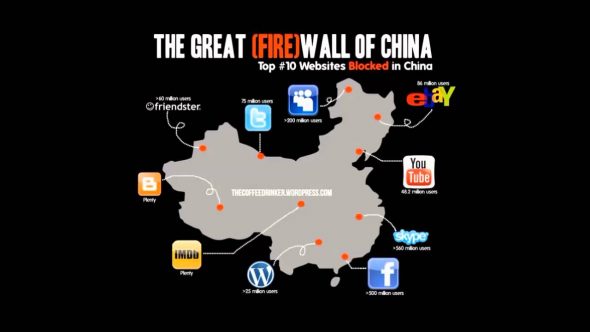With 800 million and growing Internet users in Mainland China, the country has long been a place of interest for many international companies who are looking to expand their global footprint. Since China’s Reform and Opening in 1978, foreign companies are welcomed and given opportunities to thrive. Some of the benefits include tax deduction and optimized investing environment.
In the past few years, China has been more open to foreign businesses than ever. According to the 2017 World Investment Report published by United Nations Conference on Trade and Development, China was ranked the world’s third largest Foreign Direct Investment recipient after the United States and the UK. The country’s economy was ranked the second most attractive to multinational companies for 2017-2019, after the U.S.
Book a demo today to see GlobalDots is action.
Optimize cloud costs, control spend, and automate for deeper insights and efficiency.


A website is often the first window of getting to know more about a company. Therefore, having a smooth running and fast loading website in China is a critical step to establish a presence in the country. However, with China’s own set of rules and regulations, it is not a particularly easy job to create an error-free website. There are many website elements you need to avoid.
Companies often make the mistake of assuming that if they place content on a website, the content will be viewable globally. China is a major market for website content with its own particular set of rules. You can make the mistake of going in without knowledge and experience and face having your website get blocked or reduced significantly in efficiency, resulting in a very poor user experience.
To avoid such scenarios, here are things you should do to secure your company’s success in China.
Obtain an ICP licence
Any website wishing to enter the China marketing will be required to register for an ICP license. ICP license regulates online content in compliance with China Internet regulatory laws. If content is delivered without an ICP license, it will likely be shut down.
Some companies try to host their delivery in a nearby country or rim delivery such as hosting in Hong Kong. This won’t help. You should use a partner that will be able to handle your ICP requirements.
Carriers within China often will effectively ban competing content. That includes advertisements for competitors. This means that ad placement is a bit more sensitive in China. If a company offer advertising placement to competitors of the carrier on which their traffic flows, they may find that content is not delivered and the purpose of the advertising is thwarted.
DNS hijacking is also an issue in China. DNS hijacking refers to a user seeking out content on a server, but where they typed in an address, that address is “hijacked” and the content from a different site is delivered back. It is somewhat like going to an address using a GPS and having the GPS route the driver to the neighboring address at the last minute.
To resolve all these potential issues, a company looking to establish itself on Chinese market must obtain an ICP license.
Set up a dedicated website for the Chinese market
There are numerous benefits associated with having a separate website just for Chinese consumers. First of all, it allows you to keep the Google, Facebook, YouTube, etc. links (that will not load properly in China) on your global website. The links on your website from third party companies that are banned in China will slow down the overall loading time of the website, which may lead to page abandonment by visitors.
Setting up a dedicated Chinese website also simplifies the process of applying for an ICP license, the mandatory permit to host Internet content in China. One of the requirements of getting an ICP license is that the website must have a Chinese registrar. If you do not have a dedicated Chinese website and want to apply for the license, you would first need to transfer the website’s registrar to a Chinese provider.

Choose a Chinese CDN provider to deliver your content
The Great Firewall, unique to Mainland China’s internet environment, filters each request coming in and out from Mainland China. Due to the limited number of internet traffic entry and exit point, the request time is significantly longer if the content is being delivered from outside of China, resulting in a bad end user experience.
To host content within Mainland China, companies can choose to use a CDN provider or self-host. You may already have a global CDN provider, but more likely than not they do not have enough resources to cover every province in China, limiting the number of Chinese consumers you can reach. Self-hosting is another option, but it is a quite expensive and time-consuming one. This is when a dedicated China CDN provider comes into play.
When choosing a China CDN provider, it is better to choose a company with national coverage. While people often think first of Beijing and Shanghai when marketing into China, Tier 2 cities like Wuhan often boast populations over 10 million as well. With national CDN coverage, it allows you to reach every corner of China, ensuring you don’t miss any part of your Chinese market.
Localize social media
Since the MIIT (Ministry of Industry and Information Technology) blocks so many popular Western social media sites, you’ll want to review this list of sites that are blocked in China and remove any outbound links, embeds, and other third-party features associated with blocked sites.
For example, what is less-commonly known about Twitter is that the global adult industry employs Twitter to promote a plethora of adult content. This includes graphic images of adult entertainers and adult film. China bans pornography and Twitter has a complete ban in China. If you click on a link related to Twitter within China, such as http://www.twitter.com, then the link will not work. In fact, the local ISP may hijack the DNS request and instead offer up the search page for http://baidu.cn.
If you’re focused on cultivating connections with a mainland Chinese audience, you can set up Chinese social media accounts and replace your Western links and embeds with their Chinese equivalents: Facebook > RenRen, Twitter > Weibo, YouTube > Youku Tudou, etc.
Ending thoughts
China is an interesting market with huge potential. With its 800 million Internet users (a number which increases constantly), it represents a huge opportunity for international companies.
However, due to specific and complex business regulations in China, it’s hard to establish a presence in China without help.
If you have any questions, contact us today to help you out with your performance and security needs.






